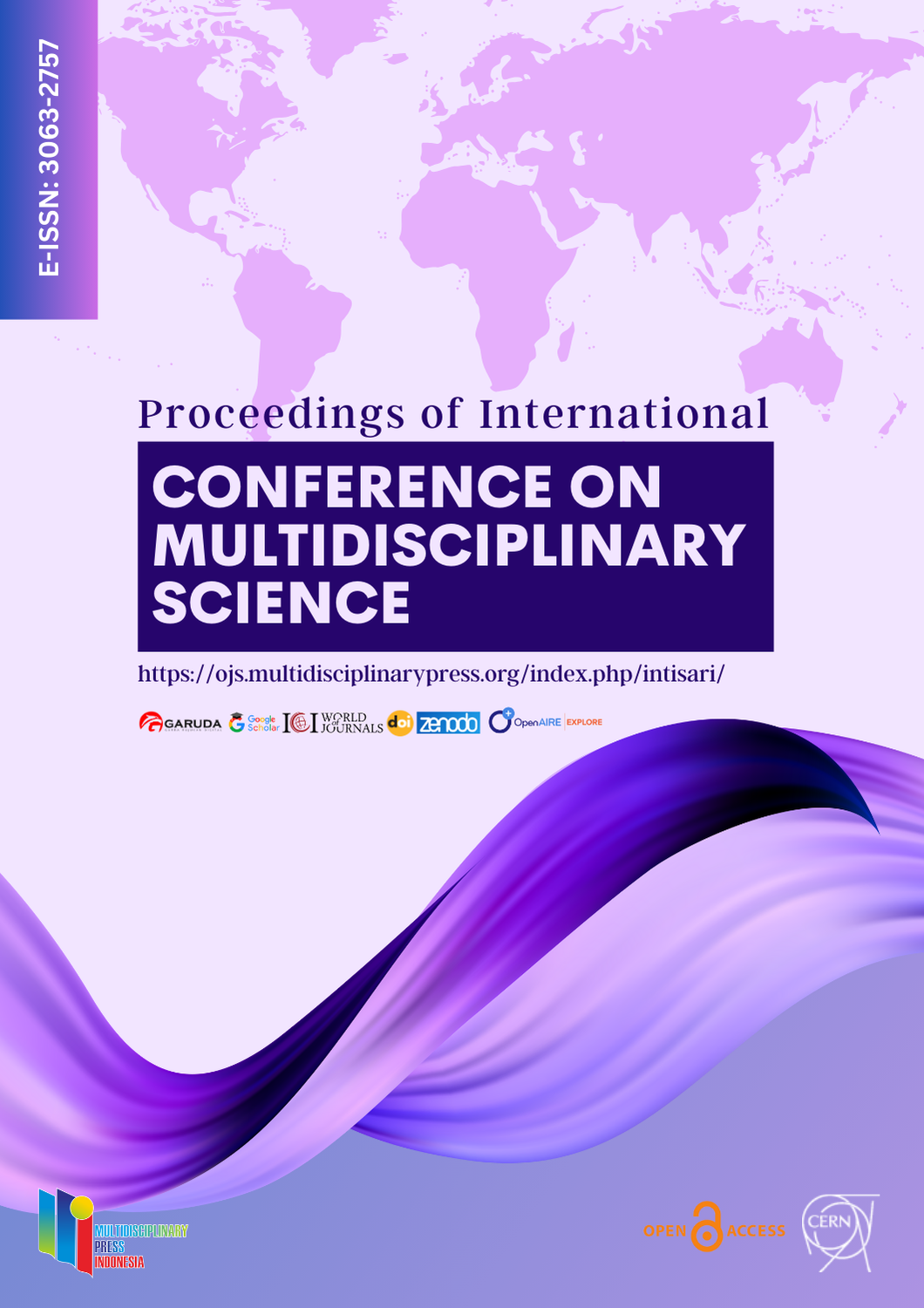Determinants of Job Performance
Keywords:
Organizational Commitment, Work Quality, Job Satisfaction, Job PerformanceAbstract
Human resource management (HRM) is a field of study and practice that focuses on the management and management of human resources in an organization. The aim is to ensure that the organization has a qualified, motivated and productive workforce to achieve its strategic goals. It is important for organizations to pay attention to human resources because the performance and success of the organization is very dependent on the quality and productivity of the workforce. Investments in HR development can increase employee loyalty, increase retention, reduce recruitment and retraining costs, and increase efficiency and productivity throughout the organization. The results of this research are as follows: Job satisfaction is unable to moderate organizational commitment to job performance with an original sample value of 0.004 and ap value of 0.486. Job Satisfaction is able to moderate and weaken Job Quality on Job Performance with an original sample value of -0.173 and ap value of 0.018. Job Satisfaction has a positive and significant effect on Job Performance with an original sample value of 0.495 and ap value of 0.001. Organizational Commitment has a positive and insignificant effect on Job Performance with an original sample value of 0.098 and ap value of 0.260. Work Quality has a positive and significant effect on Work Performance with an original sample value of 0.203 and ap value of 0.033.
Downloads
References
Anwar Sanusi, 2017. Metode Penelitian Bisnis. Cetakan Ketujuh, Penerbit Salemba Empat, Jln. Raya Lenteng Agung No.101, Jagakarsa, Jakarta Selatan, 12610
A.A. Anwar Prabu Mangkunegara. 2017. Manajemen Sumber Daya Manusia Perusahaan, Bandung : Remaja Rosdakarya.
Ghozali, I. (2021). Partial Least Squares Konsep, Teknik dan Aplikasi Menggunakan Program SmartPLS 3.2.9 Untuk Penelitian Empiris (3 ed.). Universitas Diponegoro Semarang.
Hasibuan, H. M. (2019). Manajemen Sumberdaya Manusia. Jakarta: Bumi Aksara.
Kreitner, Robert dan Angelo Kinicki. 2014. Perilaku Organisasi. Edisi 9. Buku 1. Jakarta: Salemba Empat.
Mardiyana, Sutanto, A., & Abdul Choliq Hidayat. (2019). Pengaruh Kepuasan Kerja dan Komitmen Organisasi Terhadap Kinerja Karyawan Bank Pembiayaan Rakyat Syariah Daerah Istimewa Yogyakarta. Jurnal Sains Manajemen Dan Bisnis Indonesia, 9(2), 100–113.
M M Sengkey. 2021. “Pengaruh Dukungan Sosial Rekan Kerja Terhadap Kinerja Pegawai Kota Tomohon.” Psikopedia 2(1). http://ejurnal-mapalus
Priansa D. Juni. (2016). Perencanaan & Pengembangan SDM. Bandung : Alfabeta.
Robbins, Stephen P. (2016). Perilaku Organisasi. Jakarta Selatan : Salemba Empat.
Ristanti, J., & Dihan, N. (2016). Pengaruh Kualitas Kehidupan Kerja Dan Kepuasan Kerja Terhadap Kinerja Karyawan PT Pertamina Persero RU IV Cilacap. Jurnal Akuntansi dan Pendidikan, 5(1).
Sule, E.T., & Priansa., D.J. (2018). Kepemimpinan dan Perilaku Organisasi (Membangun Organisasi Unggul di Era Perubahan). Bandung: PT. Refika Aditama.
Sugiyono, (2017). Metode Penelitian Kuantitatif, Kualitatif, dan R&D. Bandung: CV. Alfabeta.
Sinambela, Lijan Poltak dan Sarton Sinambela (2021). Metodologi Penelitian Kuanitatif - Teori Dan Praktik. Depok: Rajawali Pers.
Siyoto, S. & Sodik, A. 2015, Dasar Metodologi Penelitian, Literasi Media Publishing, Yogyakarta.
Tanjung, H. (2015). Pengaruh disiplin kerja dan motivasi kerja terhadap prestasi kerja pegawai pada dinas sosial dan tenaga kerja kota Medan. Jurnal Ilmiah Manajemen dan Bisnis.
Downloads
Published
How to Cite
Issue
Section
Categories
License
Copyright (c) 2024 Erni Winari, Muhammad Isa Indrawan

This work is licensed under a Creative Commons Attribution 4.0 International License.





